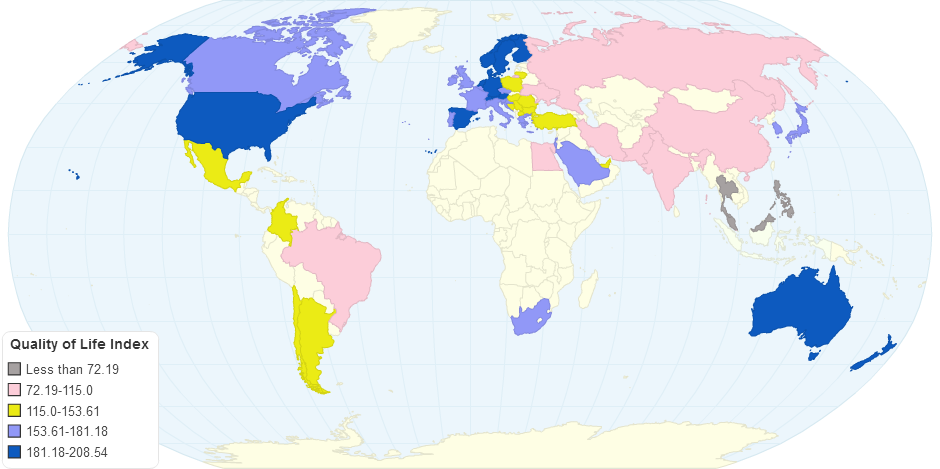This chart shows Quality of Life Index 2016.
Quality of life (QOL) is the general well-being of individuals and societies. QOL has a wide range of contexts, including the fields of international development, healthcare, politics and employment. It is important not to mix up the concept of QOL with a more recent growing area of health related QOL. When we look at HRQOL we in effect look at QOL and its relationship with health.Quality of life should not be confused with the concept of standard of living, which is based primarily on income.
Quality of life is a highly subjective measure of happiness that is an important component of many financial decisions. Factors that play a role in quality of life vary according to personal preferences, but they often include financial security, job satisfaction, family life, health and safety. Financial decisions usually involve a tradeoff where quality of life is decreased in order to save money or, conversely, quality of life is increased by spending more money.
In the domain of culture, for example, it includes the following subdomains of quality of life:
1.Identity and engagement
2.Creativity and recreation
3.Memory and projection
4.Belief and ideas
5.Gender and generations
6.Enquiry and learning
7.Wellbeing and health
Also frequently related are concepts such as freedom, human rights, and happiness. However, since happiness is subjective and difficult to measure, other measures are generally given priority. It has also been shown that happiness, as much as it can be measured, does not necessarily increase correspondingly with the comfort that results from increasing income.
10 years ago

